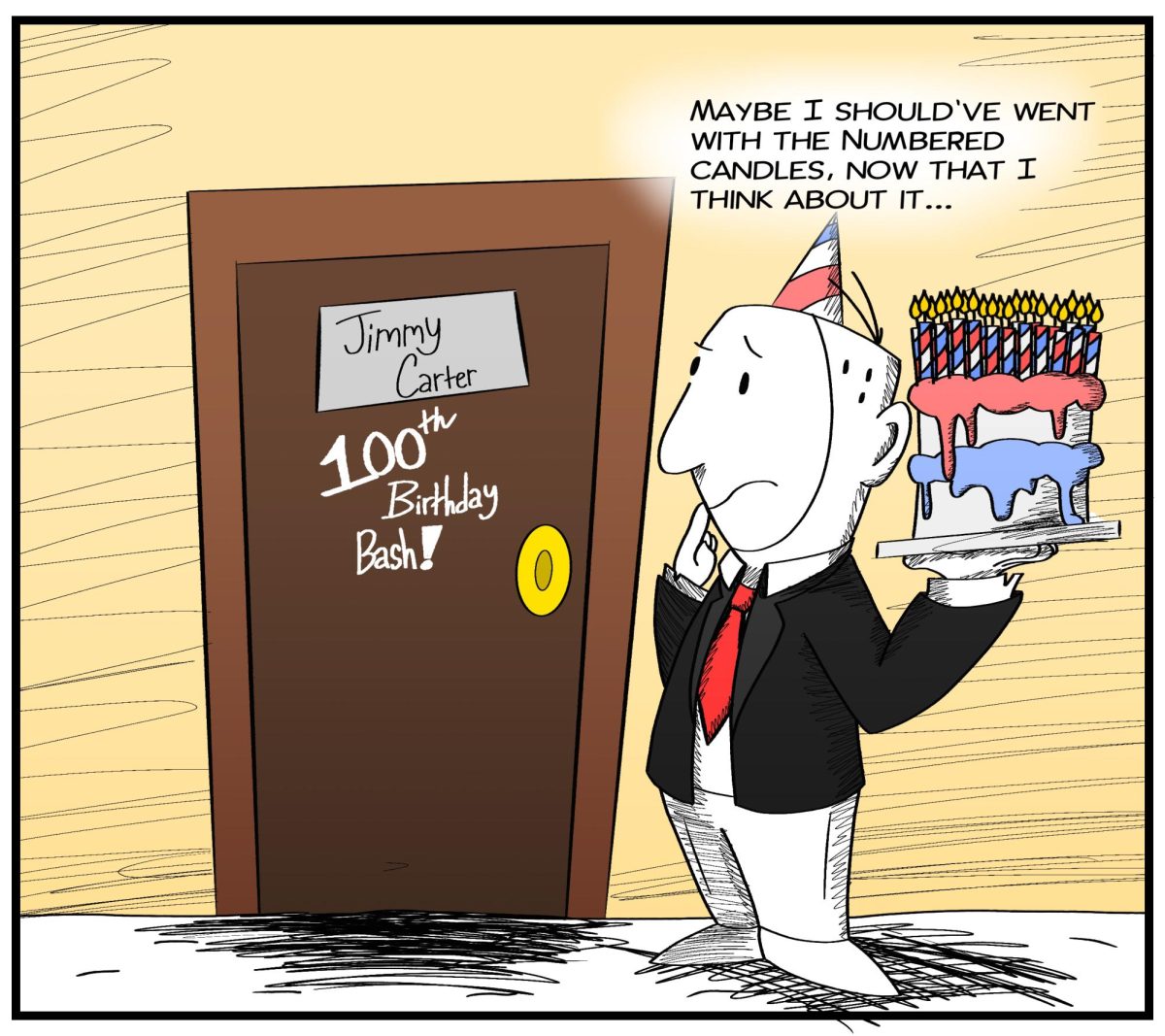Jimmy Carter celebrated his 100th birthday on Oct 1, 2024. This is a significant achievement, but especially impressive for Carter as he is the first president to reach a triple-digit age in the United States’ nearly 250-year history.
He served one term as governor of Georgia, two terms as a Georgia state senator, and survived all four years doing the world’s most dangerous and stressful job. Carter was awarded the 2002 Nobel Peace Prize; however, he is widely regarded as a poor president.
While I would not argue against this assessment of his presidency, I think it is worth revisiting his career and life post-presidency. The way I see it, in every way he could manage, Jimmy Carter sought to serve the American people for the betterment of the nation and the world. Even though he did not succeed in ways people hoped he could have as president, Carter looked to make up for it for the rest of his life.
Unlike many politicians, Carter did not use his offices to enrich himself in ways he could have. During his governorship and terms as a state senator, he focused his attention on the growing civil rights movement rather than prioritizing to increase profits for business owners. Carter provided support as an activist within the democratic party and used his platform to call for an end to racial segregation.
It has been touted that before taking office, Carter sold his family’s peanut farm, but this is not necessarily true. He put the estate, known as the Boyhood Farm, alongside his peanut business into a blind trust in 1976. In a blind trust, instead of divesting ownership of an asset, blind trusts simply delegate management to someone else. He did this to avoid any conflicts of interest. He chose to do this because he felt the nation needed someone safe that would not cheat them in the wake of the Watergate scandal.
Once his presidency ended, he recovered the management of his peanut business. However, it was over one million dollars in debt, so Carter was forced to sell it. In the fear of losing the Boyhood Estate, he began writing books about his experiences in the Navy and politics. Using only his name and history as a selling point, he hoped that his insight would provide a way out of the hole for his family.
With the book royalties and the presidential pension, he was able to carve out a nest egg for his children and devote himself entirely to his work as a diplomat and a leading face of Habitat for Humanity. He worked with and advocated for the nonprofit from 1984 until very recently when his body finally gave out after the pressure that has been put on it for 99 years.
With all these great things being said, Carter was not the right man for the tense political climate of the late 1970s. He ran for president as a D.C. outsider with no corrupt connections. This also meant that he and the other Georgia executive staff he brought with him lacked experience with the ways of Capitol Hill. He also lacked both the general machismo expected of a president during the Cold War and any foreign policy experience.
All these factors combined for a weak term marred by the Iran hostage situation that would leave scars on the best of presidencies. Even in his failures, Carter sought to forward the good of the American people and the world. After his presidency, Carter began a different kind of campaign; one that sought human rights and worked for social welfare.
He undertook peace negotiations in the Middle East, seeking de-escalation in cases that sometimes seemed counter to government policy. For his efforts, he was awarded the Nobel Peace Prize in 2002 and is known as one of the most active post-presidents in the history of the United States.
In my mind, Carter stands on a peak alongside Ulysses S. Grant, high above other United States presidents regarding the contents of their characters. Despite occasionally falling short, Carter never wavered in his pursuit of the good of the world. As a devout Christian, Carter never sought to force his perspective and morality onto others, only calling for peace.
Though Americans wanted a gallant warrior, America received a man who was imperfect for the office, but in the same way just the right kind of man for the world.








